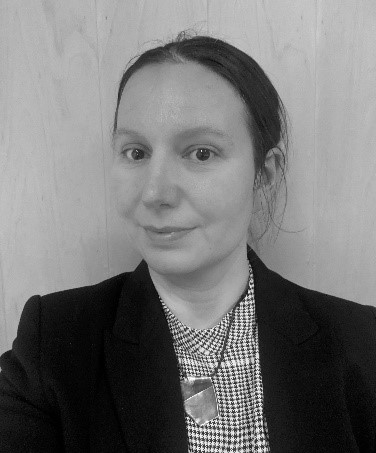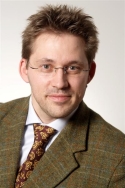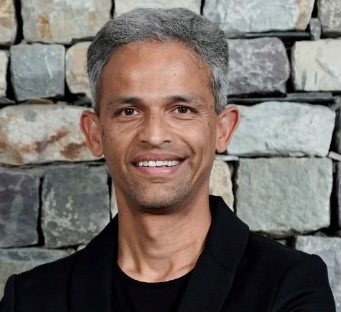Workshops
1st Workshop on Learning-Aided Adaptive Systems
Workshop Theme
Businesses today operate in a highly dynamic environment experiencing an unprecedented variety of change drivers such as new technologies, emerging business models, and evolving needs of stakeholders that translate to new demands on software systems supporting the enterprise.
Systems of the future need to be engineered to dynamically handle uncertainty and respond to change in as automated a manner as possible. Systems will need to learn from their own behaviour and interactions to help enterprises respond appropriately to change and continue to meet goals. This would require work on several fronts including system modelling and analysis, sensing and monitoring uncertainty, calibration and classification of change, recommending courses of action and implementing changes in software architectures and code.
For example, tomorrow’s healthcare systems need to learn from the varied, changing wellness needs and responses of individuals and adapt themselves and their recommendations to achieve better healthcare, wellness, and work-life balance for all.
Similarly the telecom domain with the advent of new technology such as 5G is seeing the need for large-scale adaptation of systems, services, and networks to realize the vision of next generation connectivity.
In retail, need for adaptation manifests in planning supply chains of products driven by market needs and strategies resulting in introduction of new technologies such as autonomous robots in warehouses for optimized and faster logistics management.
This workshop aims to bring together researchers and practitioners from multiple disciplines and industry verticals to discuss and deliberate upon AI and machine learning approaches, modelling techniques, knowledge representation, automated analysis and validation, software architectures, language engineering and program analysis to realize the vision of learning-aided adaptive systems.
The workshop will be held as a series of invited talks on relevant research and interesting real-world challenges followed by interactive discussions and setting directions for future work in the inaugural edition.
Workshop Program - Invited Talks
Session 1: 2.30- 4.15 pmOpening Remarks |
|---|
Invited Talk 1Prof. Ivana Dusparic, Trinity College, Dublin
Reinforcement Learning for Self-Adaptation in Large-Scale Heterogeneous Dynamic Environments Abstract Reinforcement learning (RL) algorithms, and in particular their combination with deep neural networks, are increasingly applied in a range of practical self-adaptive applications and cyber physical systems. However, existing algorithms often fall short of being suitable for use in such complex environments. Ivana Dusparic is an Associate Professor in the School of Computer Science and Statistics, and a Fellow of Trinity College Dublin. Her research focuses on development of reinforcement learning and multi-agent learning techniques to achieve optimization in large-scale heterogeneous infrastructures, such as intelligent mobility systems, smart energy grid, and future communication networks. She is currently a co-director of Science Foundation Ireland Centre for Research Training in AI, Principal Investigator of the Smart Networking in the Era of AI collaboration between Trinity College Dublin and Tsinghua University, and a co-PI in ClearWay, a newly funded project on Advancing Deep Reinforcement Learning and Swarm Intelligence for intelligent mobility. She is involved in a number of Irish and European multi-disciplinary initiatives investigating the impact of connected and autonomous vehicles on traffic congestion, safety, and urban design and developing new sustainable mobility models for a just transition. |
Invited Talk 2Prof. Holger Giese, Hasso Plattner Institute, University of Potsdam
Learning and Smart Cyber-Physical Systems of Systems Abstract Currently, a dramatic transformation of our technical world towards smart cyber-physical system of systems can be observed. Networked embedded systems with their interaction with the physical world are enhanced to system of systems interconnected in the cyber. Furthermore, employing artificial intelligence techniques and in particular machine learning enables smart system of systems. Holger Giese studied technical computer science at the University Siegen. He received his engineering degree with excellence in October 1995. In February 2001, he received a doctorate in Computer Science at the Institute of Computer Science at the University of Münster with summa cum laude. Until 2006, he was an assistant professor for object-oriented specification of distributed systems in the Software Engineering Group of the University of Paderborn. Since 2006, he was a Visiting Professor for System Analysis and Modeling at the Hasso Plattner Institute for Software Systems Engineering. He became a Full Professor for System Analysis and Modeling at the Hasso Plattner Institute for Software Systems Engineering in February 2008. He is member of the Association for Computing Machinery (ACM), the IEEE Computer Society, the German Informatics Society (GI), and the German University Council (DHV). |
| Tea Break – 4.15 – 4.30 pm |
| Session 2: 4.30 – 6.00 pm |
Invited Talk 3Prof. Tony Clark, Aston University, UK
A Domain Specific Language for Digital Twin Modelling and Prototyping Abstract Digital Twins involve models of real systems and typically use machine learning
techniques to adapt the real system towards a desired behaviour that achieves a goal.
The scale of the system state space often requires the use of techniques such as deep learning meaning that the
semantics of the domain are lost. Tony Clark is a Professor of Computer Science and Deputy Dean in the College of Engineering and Physical Science at Aston University. He has experience of working in both Academia and Industry on a range of software projects and consultancies. He is an editorial board member of the Journal of Soft-ware and System Modelling, the Journal of Enterprise Modelling and Information Systems Architec-tures and the Journal of Object Technology, has edited several special issues including IEEE Software and SoSyM, and was co-chair of the MODELS conference in 2011. He was PC Chair of the Innovations in Software Engineering Conference for 2021. Tony is an authority on Digital Twins and has published articles and delivered tutorials at leading International Computer Science conferences including the organisation of a Dagstuhl on Model Driven Engineering for Digital Twins in 2022. |
Invited Talk 4Nickhil Jakatdar, CEO, GenePath Diagnostics, USA
Leveraging device data and domain experts to drive adoption of preventive healthcare Abstract Diabetes and heart disease together make up the largest cause of deaths worldwide. India is considered the diabetes and heart disease capital of the world. While genetics plays an important role, our lifestyle habits play an equally if not more important role. This talk will cover the learnings from a pilot program that used a combination of data from wearables and other devices as well as domain expertise from endocrinologists, cardiologists, clinical dietitians and behavioral scientists to drive a change in the anthropometric profiles and metabolic markers by making small but scientifically based changes to lifestyle habits. Nickhil Jakatdar earned his Bachelor’s degree in Electrical Engineering from the College of Engineering, Pune, India and his MS and Ph.D. in EECS from UC Berkeley. He founded or ran four start-ups across different domains, including semiconductor manufacturing metrology, chip design software, direct-to-consumer mobile video service and genetic and molecular diagnostics company. |
|
Closing Remarks and Discussion |
Workshop Organizers
Deepali Kholkar is a Principal Scientist at Tata Consultancy Services Research (TCSR). Her research interests include modelling, knowledge representation and reasoning, learning and adaptive systems, and applying these to industrial problems that have led to several publications and patents.E-Mail: deepali.kholkar@tcs.com
Dr. Suman Roychoudhury is a Senior Scientist at Tata Consultancy Services Research (TCSR). His research interests include machine learning, software language engineering, and adaptive systems. He has numerous scholarly articles at premier conferences and journals and has actively participated in OMG standards development.
E-Mail: suman.roychoudhury@tcs.com
